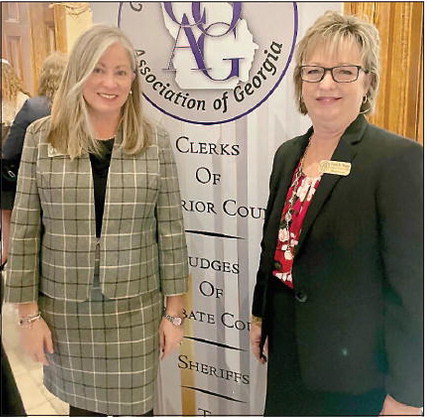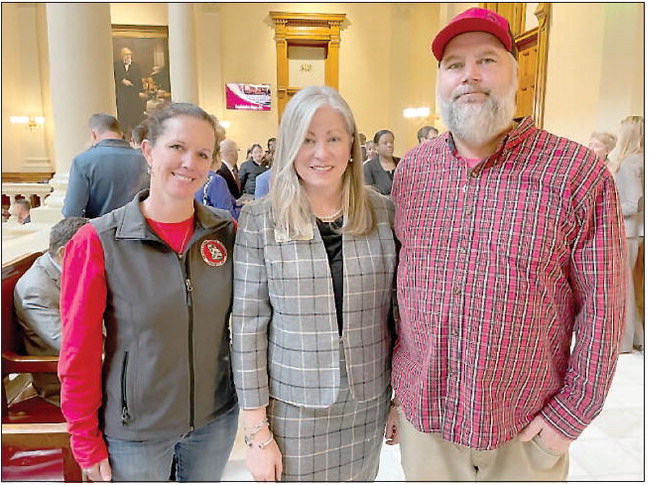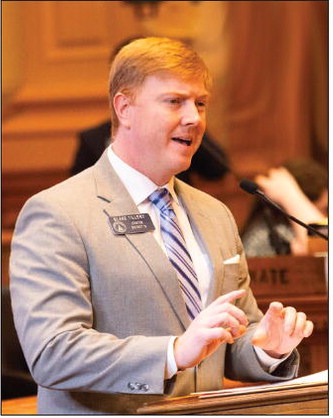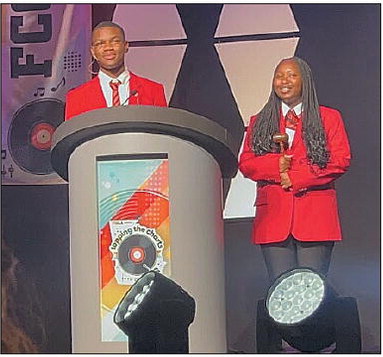Week 5 Session Update: Moving Through the Legislative Process


Last week, my colleagues and I ret urned to the Geor gia State Capi tol for the fifth week of the 2025 legislative session. The House has been hard at work, tackling issues that matter and advancing important bills through the legislative process. With Crossover Day quickly approaching on March 6, the pace is only getting faster. Crossover Day, or Legislative Day 28, is the deadline for bills to clear their respective chambers and continue moving forward. Advancing Legislation for Georgia One of the key pieces of legislation we passed this week was House Bill 61, which builds on House Bill 804 from last session. HB 61 would require separate license plates for ambulances and hearses, clarifying their distinct purposes. Right now, both vehicles share the same plate reading “Hearse/Ambulance,” a holdover from the days when hearses were also used to transport patients. With this update, ambulances and hearses would have their own plates. The bill passed unanimously and now heads to the Senate.
Another important bill, House Bill 199, enhances the safety of our state’s judges and their families. This bill was a priority in Chief Justice Michael Boggs’ recent State of the Judiciary Address. HB 199 would require all state and local government entities to remove or redact publicly available information that identifies someone as a judge or their spouse. The bill is a response to the alarming rise in swatting incidents targeting judges and elected officials. By ensuring that personal information is protected, we can help keep our judges from being threatened and make sure our judicial system is not compromised. Strengthening Georgia’s Workforce On Wednesday, we honored the late State Representative Richard Smith by passing House Bill 216, the Richard H. Smith Georgia CHIPS Advancement in Research and Economic Development Act. This bill would continue his vision of making Georgia a key player in the semiconductor industry. HB 216 creates a fund to support workforce education and training programs in semiconductors, microelectronics, and related fields. With this investment, we can build a skilled workforce, reduce reliance on foreign production, and strengthen Georgia’s position in innovation and economic growth. Many of us are concerned about our dependence on foreign adversaries, and producing our own microchips here in Georgia will help alleviate that. The bill received overwhelming support and now moves to the Senate.
Keeping with the theme of workforce development, we also passed House Bill 81. This bill creates the Interstate Compact for School Psychologists, making it easier for licensed school psychologists to work without burdensome hurdles. Shortages of school psychologists have left many students without the support they need. By easing licensure barriers, HB 81 ensures Georgia students have access to quality psychological services, no matter where they live. This bill also helps military families by allowing licensed school psychologists to relocate with fewer restrictions.
Reducing regulatory burdens for Georgians just makes good sense. The Legislative Process in Action Each bill we pass goes through a thorough process before it can become law. Here’s a quick look at how a bill moves through the legislative process: Introduction: A bill is introduced and assigned to a committee.
Committee Review: The committee discusses the bill, makes changes if needed, and votes on whether it should move forward.
House Vote: If the bill passes out of committee, it goes to the full House for debate and a vote.
Senate Process: If approved by the House, the bill follows a similar process in the Senate.
Governor’s Desk: If both chambers approve the final version, it heads to the governor’s desk.
As we approach Crossover Day, bills that haven’t cleared their chamber yet must move quickly. If they don’t pass by March 6, they can’t continue this session unless attached to another bill. Visitors to the Capitol
Last week’s visitors to
the Gold Dome included: Mrs. Mallorie Cor ley and members of the Toombs County High School FCCLA group.
Becky Gay, Director of the Fitzgerald Ben Hill Communities in Schools program.
Leadership of Alta maha EMC and Canoochee EMC.
Kasey and Beau Jack son. Kasey is the Director of the Toombs County Young Farmers.
Wheeler County Clerk of Courts Carol Bragg visited for Constitutional Officers Association of Georgia Day at the Capitol.
Vidalia High School's FBLA, HOSA, FCCLA, TSA, and SkillsUSA groups and their leaders including Shellie Cleghorn and Gray Meredith.
Looking Ahead
The Georgia House will reconvene on Tuesday, February 18. With the Rules Committee meeting more frequently, we’ll see even more bills come up for votes on the House Floor.
As we continue through this legislative session, I encourage you to stay informed and engaged. You can track the status of bills on the official Georgia General Assembly website and our House social media pages. For information on how you can track bills and watch committee meetings, visit my Constituent Services page at LeesaHagan.com.
If you have any questions or concerns, please reach out. I’d love to hear from you! You can best reach me during session via email at Leesa.Hagan@house.ga.gov. As always, thank you for allowing me to serve as your representative for Georgia’s 156th House district – the best in the state!

L to R: Kasey Jackson, Rep. Leesa Hagan, and Beau Jackson.

By Leesa Hagan R-Vidalia (District 156, Georgia House of Representatives)

LYONS DECLARES CTAE MONTH – During the Lyons City Council meeting on Tuesday, February 4, Mayor Willis Ne-Smith issued an official proclamation that deemed February “Career, Technological, and Agricultural Education (CTAE) Month” within the city. He commended the Toombs County Schools CTAE programs, emphasizing the rich knowledge and experience that they provide students to prepare them for the future. L to R: Councilman John Moore Jr.; Councilwoman Cathy Benton; Councilman Ivy Toole Jr.; Toombs County Schools CTAE Director Renee Garbutt; Toombs County Middle School Business Teacher Crystal Rushing; Toombs County High School Heavy Equipment Teacher Tom Brodnax; Toombs County High School Construction Teacher Charlie Hartley; Toombs County High School Technology Student Association Advisor Jess Bush; Toombs County Middle School Agriculture Teacher Beth Galloway; Toombs County Business Teacher Jessica Jones; Mayor Willis NeSmith Jr.; Toombs County High School Student Media Advisor Tyler Corley; Toombs County High School Family, Career and Community Leaders of America Advisor Mallorie Corley; Councilman Tracy Johnson; Councilman Drayton Oliver; Toombs County High School Assistant Principal Joey Montford.






